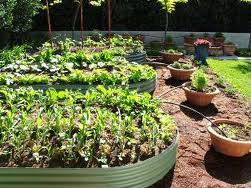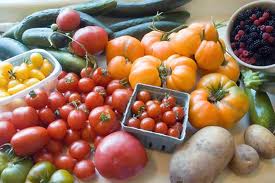Eco Green Facts
Lorem ipsum dolor sit amet, consectetuer adipiscing elit. Curabitur quam augue, vehicula quis, tincidunt vel, varius vitae, nulla. Sed convallis orci. Duis libero orci, pretium a, convallis quis, pellentesque a, dolor. Curabitur vitae nisi non dolor vestibulum consequat. Read the rest of this entry �
 Make The Most Of Your Organic Garden with these suggestions
Make The Most Of Your Organic Garden with these suggestions
Many people out there are literally only a few tips away from growing their own garden. If you’ve been browsing the web looking for real-deal gardening tips straight from organic experts, then you need to read this article right now. It’s packed full of great tips that can help you grow the garden you’ve always wanted.

If you want to have great organic produce but are unable to grow it yourself then you should be sure to check out your local farmer’s market. These places always have a different rotation of produce but typically have great prices for some of the best products that you can find in the area.
A good general rule when planting your seeds into containers is that the depth of the planting should be about three times the size of the seed. However, you should be aware that certain seeds should not be covered at all because they are required to be in the sunlight. Some common examples include ageratum and petunias. If you are not sure whether your seeds need to be exposed to sunlight, resources are usually provided with the seeds or can be found online.
Be sure to research what kind of plants you have in your organic garden and what types of plants you plan on adding. There are some types of flowers such as poinsettias, sweet peas, amaryllises, irises, and oleanders that are incredibly poisonous. Use caution when planting something in your garden.
Most organic fertilizers will not harm the soft roots of plants, unlike, synthetic fertilizers. A great way to use an organic fertilizer is to mix it with the top two inches of soil next to the plant. This is called side-dressing, and it is usually worked into the soil during the growing season.

The best and most natural way to fertilize an organic garden is with compost. Compost can be made from anything that was once alive. Don’t discount the value of your kitchen waste, leaves, grass clippings or anything else that was once alive. By composting it all, you will give invaluable life to your organic garden.
Be aware of what your plants will become when they grow to adulthood in your organic garden. This is so you can take their adult size into consideration when deciding where to plant them in your garden. Try layering them by height and blooming time for a bit of emphasis and constant pops of color.
Research plants before bringing them home. When you are trying to get the best plants for your organic landscape, you should take the time to get educated. Chose plants that are suited to growing conditions you already have, rather than trying to build an environment for a plant you didn’t plan correctly for.
When selecting the best plants for your garden, pick ones that are budding. You should avoid buying plants that are blooming already. That way when you transplant into your garden the plant will spend time growing, and getting accustom to the new environment. Blooms will detract from the plants ability to adapt.
If you have the space, building a compost bin can be a great way to save money and always have compost at the ready. When planning your bin, consider a three-sided bin rather than a four-sided bin. A three-sided bin allows you to easily access the heap for regular turning without reaching over a wall or using a gate.
Use organic mulch. Any material that is spread over the soil is considered mulch. It helps to keep weeds at bay, holds moisture in the soil, and keeps the ground cool in summer and warm in winter. Examples of mulch include compost, shredded leaves, fine wood chips, straw and grass clippings.
Before you replant your flowers or vegetables outside, you need to get them ready. For a few weeks, move your plants to a colder spot with no light for a few hours. Gradually increase the amount of time you leave your plants in the cold. After a few weeks, your plants should be ready for the outdoors.
Use living matter to make the best compost. Though you may be tempted to start tossing everything into your compost pile, don’t do it. Remember your compost is not a trashcan. Put plenty of grass clippings, fallen leaves, and kitchen garbage such as food scraps and old leftovers. This will make your compost process faster.

To make your organic gardening venture as environmentally friendly as it is healthy, consider making your own mulch. To make your own mulch, all you need is a soil sample combined with your leftover food products. You can buy a mulcher or manually mulch your waste simply by turning it over every few days.
Proper information is the key to proper gardening, so make sure you take stock of the tips you’ve just read in this article. If you can successful put these tactics into action, you will benefit greatly with a full and illustrious garden that you can be proud of. Make sure you use these tips and enjoy your garden.




